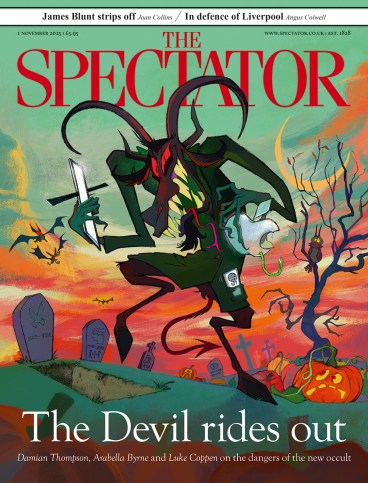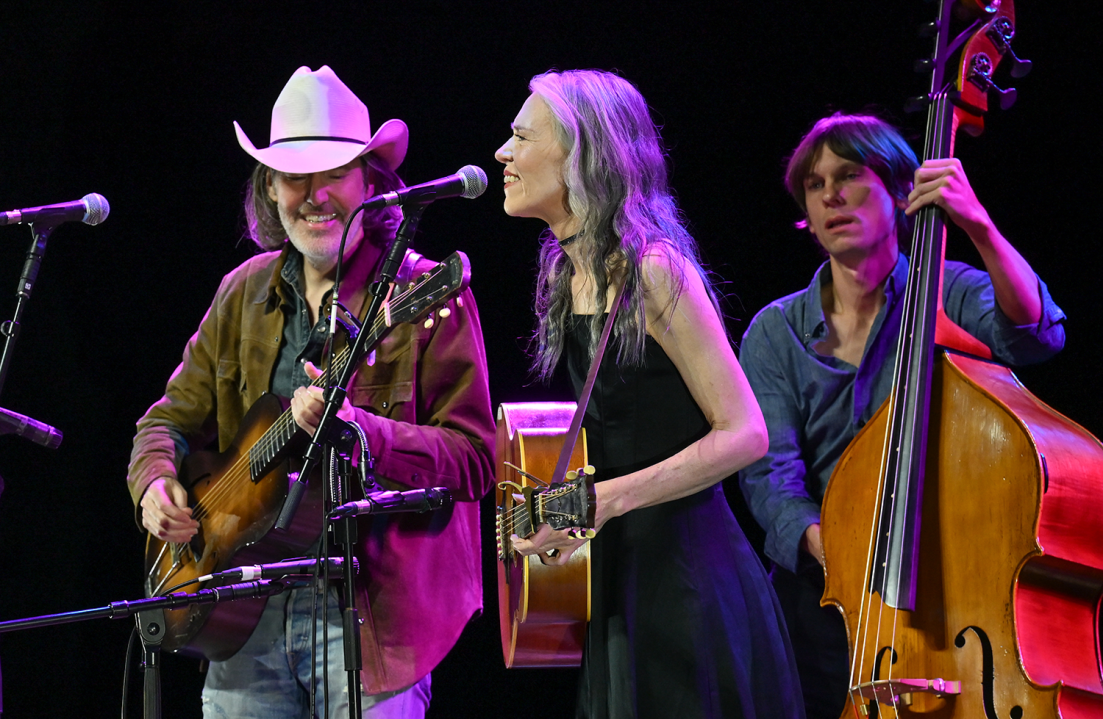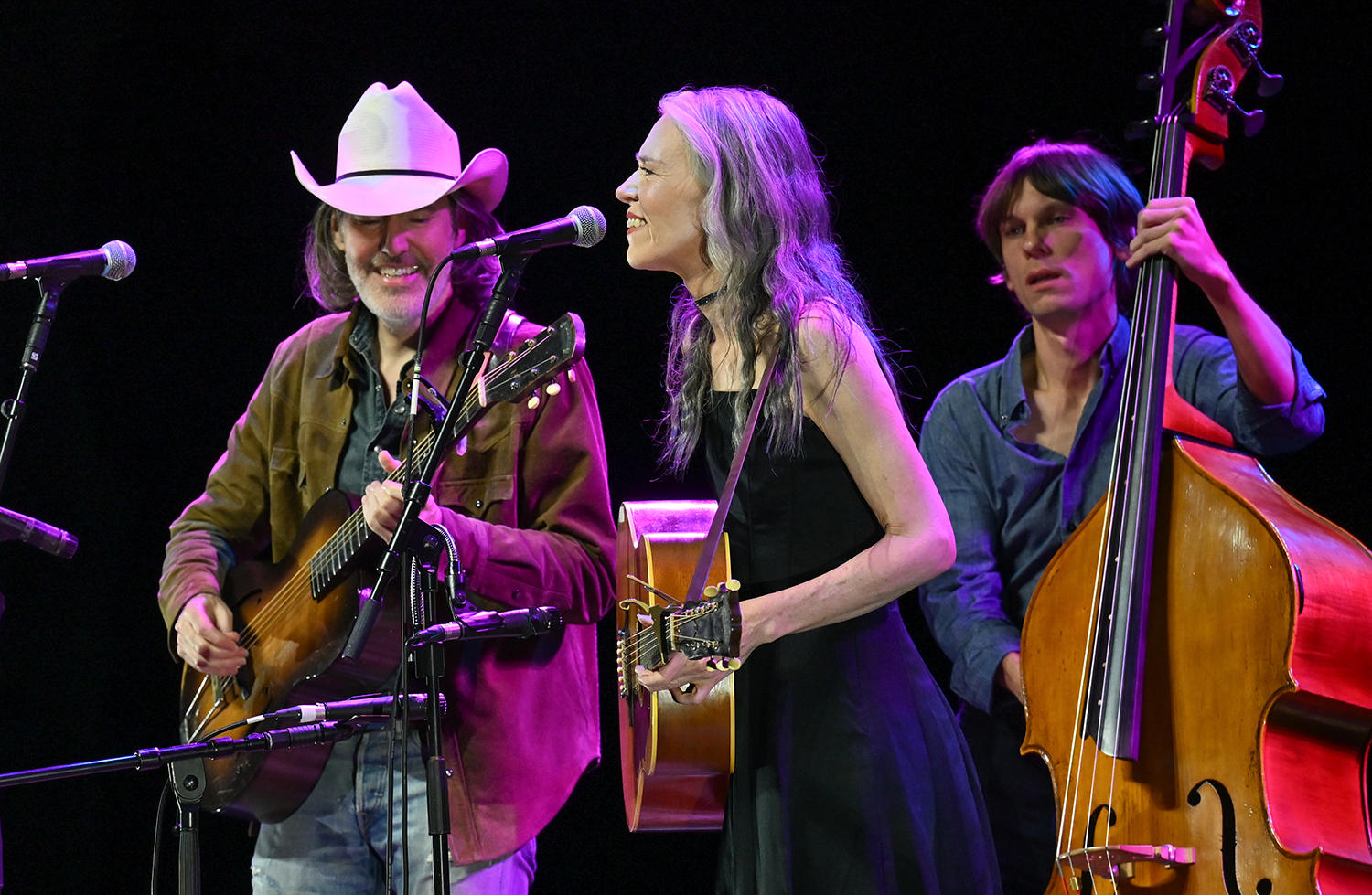
The last time Gillian Welch and David Rawlings played in London it was a different world: the world of David Cameron and Barack Obama and a Manchester United at the top of the Premier League. Welch and Rawlings have changed, too: Welch is silver rather than red, and Rawlings as grizzled as a bear.
Welch was in brown floor-length dress and Rawlings in suede jacket and cowboy hat. With a rather younger upright-bass-player, Paul Kowert, the trio looked like farmers trying to save their land from The Man in some Taylor Sheridan TV series. And then they started singing.
Welch and Rawlings have released records under their own names and as a pairing. But they always work together, and there was a total intimacy to their performance – in the way Welch smiled to herself as Rawlings flung forth another pellucid acoustic guitar solo, in the keening of their harmonies and the ease with which they negotiated nearly three hours on stage.
Three hours sounded disconcertingly long for a show consisting of two people with acoustic guitars (plus an occasional banjo and harmonica), but the strength of the songwriting carried it. This was music both ancient and modern, often at the same time. ‘Revelator’, for example, Welch’s standout song, takes the charged title word – which is simultaneously biblical and steeped in the American musical tradition, thanks to the blues song ‘John the Revelator’ – and applies it to the revelations of personal life.
With playing this good, you didn’t need showmanship, and there was none bar Welch slapping her thighs and tap-dancing to provide percussion to ‘Six White Horses’. As bluegrass and folk and country merged, it was genuinely intoxicating. And became ever more so as the night went on. There was a sense of a musical life unfolding, of an entire world being revealed. Rawlings was extraordinary: sticking to one acoustic guitar for almost the whole evening, he played sinewy lead lines that crept through the songs like ivy. I could have listened to him all night.
Sticking to one acoustic guitar, Rawlings played sinewy lead lines that crept through the songs like ivy
One chap near the front of the audience ended every song by standing and making the ‘we’re not worthy’ bowing gesture. The crowd ended up dragging Welch and Rawlings back for six encores, which lifted the evening to further highs. ‘Method Acting’ segued into Neil Young’s ‘Cortez the Killer’ that had all the Crazy Horse intensity even without a rhythm section. Then a version of Jefferson Airplane’s ‘White Rabbit’ that brought out all the chilly sternness of the song. And to finish – off mic and at the lip of the stage – ‘Long Black Veil’.
When Amyl and the Sniffers first came to London, seven-and-a-half years ago, they were playing in pubs. That was entirely appropriate: they are a pub rock band, in the rich Australian tradition of mindless musical thuggery. In the intervening years, however, they have somehow graduated to very big rooms, without seeming to make many concessions to good taste: their records are still chugging riffs with Amy Taylor ranting on top, even if the production is now a little glossier, and the stage show incorporates fancy lighting and big screens.
Taylor is plainly the key to their rise. She’s not much of a singer, but what charisma she has. A tiny, ferocious hurricane, with ludicrously piled blonde hair, garish make-up, a red basque – a parody of male expectations of sexuality – she’s a blend of Dolly Parton and John Lydon.
But Amyl and the Sniffers should not be playing a room like this. Not because they’re not big enough but because it is so palpably unsuited to them, as it is to almost all rock bands. Alexandra Palace is little more than a big, empty shed, booming and echoey, and it is very hard to get the sound right, and Amyl and the Sniffers really didn’t: the mix reduced each part of the drum kit to a dull thud, with no textural variation – the snare didn’t crack – so it sounded as if the entire set was being played on the kick drum. It was a headache.
In fact can we be frank? Ally Pally is one of the worst venues in London. No Tube; up a bloody hill; has a concourse that smells of burnt oil; cold in winter; boiling in summer; terrible sound and sightlines. Amyl and the Sniffers sounded particularly poor, but in truth no band should ever play there.








Comments